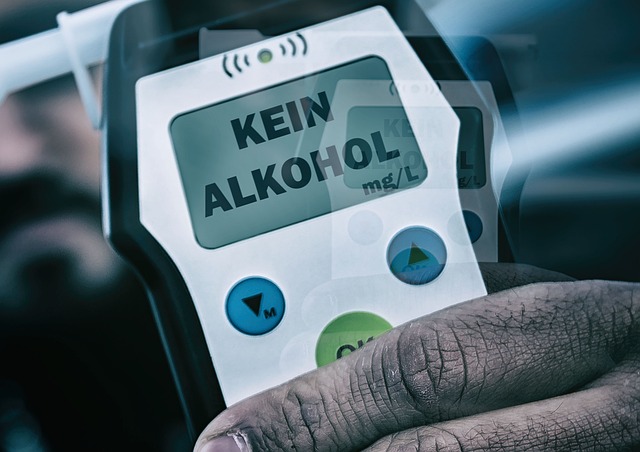College campuses nationwide implement stringent "Zero Tolerance" policies for DUI to enhance safety. These include education programs, severe penalties, and partnerships with law enforcement. While aiming to deter impaired driving, critics argue these policies may negatively impact academic performance and mental health, especially when coupled with legal repercussions. Effective prevention strategies involve multi-faceted initiatives like workshops, peer education, and technology-driven engagement, fostering a culture of responsible behavior while acknowledging individual circumstances.
College campuses are adopting “zero-tolerance” policies towards DUI (drunk or drugged driving), a move aimed at enhancing student safety. However, this strict approach has sparked debates about its long-term effects on students. This article explores the intricacies of college campus DUI prevention, focusing on understanding these policies, their impact, and effective strategies that balance safety with support. We delve into how institutions can create robust prevention programs while mitigating the harsh consequences of zero-tolerance rules.
- Understanding College Campus DUI Policies
- Impact of Zero Tolerance on Students
- Strategies for Effective Prevention Programs
- Balancing Safety and Support on Campus
Understanding College Campus DUI Policies

College campuses across the nation have implemented stringent policies regarding Driving Under the Influence (DUI) to ensure the safety of students, faculty, and visitors. These zero-tolerance rules are designed to deter individuals from operating vehicles while impaired and subsequently reduce the risk of accidents and potential injuries. Understanding these policies is crucial for anyone associated with college life.
The specific DUI prevention measures vary between institutions but generally include mandatory education programs, strict penalties for offenses, and collaborative efforts with local law enforcement. Many colleges organize awareness campaigns to educate students about the legal consequences and personal responsibilities tied to consuming alcohol and driving. By fostering a culture of accountability, these initiatives aim to create a safer environment on and off campus, particularly during social events where alcohol consumption is prevalent.
Impact of Zero Tolerance on Students

The “Zero Tolerance” policy prevalent on college campuses has significantly shaped the student experience, particularly in cases involving alcohol and drug use. This stringent approach, often mimicking legal systems with strict penalties for offenses like College Campus DUI (Driving Under the Influence), aims to deter students from engaging in dangerous behaviors. However, critics argue that such policies can have detrimental effects on students’ lives, especially when considering the potential for overreach and the impact on mental health.
Students facing charges under these policies may experience severe consequences, including expulsion or permanent academic records marred by DUI-related incidents. This can profoundly affect their future prospects, making it challenging to secure admission to graduate schools or land specific jobs. Moreover, the stress of navigating legal repercussions alongside academic demands can exacerbate existing mental health issues or contribute to new ones, highlighting the complex interplay between campus discipline and student well-being.
Strategies for Effective Prevention Programs

College campuses are implementing zero-tolerance policies for alcohol and drug misuse, focusing on prevention through education and strict enforcement. An effective strategy involves a multi-faceted approach that combines awareness programs, peer education, and robust support services. These initiatives aim to educate students about the risks associated with substance abuse, promote responsible behavior, and provide resources for those in need of help.
For instance, hosting interactive workshops, offering training on overdose prevention, and organizing social events free from alcohol can significantly reduce high-risk behaviors. Peer mentors who share their experiences can humanize the issue and encourage open dialogue. Additionally, utilizing technology to deliver personalized messages and reminders about campus resources can enhance engagement. Integrating these strategies into a comprehensive College Campus DUI Prevention program fosters a culture of responsibility and well-being among students.
Balancing Safety and Support on Campus

College campuses are tasked with maintaining a safe environment for students, faculty, and staff while also fostering a supportive atmosphere that encourages open dialogue and personal growth. Striking a balance between these two objectives is crucial, especially when addressing issues like College Campus DUI Prevention. While zero-tolerance policies may seem like an effective deterrent, they can sometimes lead to harsh consequences without considering the unique circumstances behind each incident.
A more holistic approach could involve comprehensive education programs that raise awareness about responsible drinking, as well as robust support systems for students facing personal challenges. By combining strict safety measures with compassionate support, colleges can effectively navigate the complex landscape of campus life, ensuring both security and a welcoming environment where students can thrive.
College campuses are striving to balance safety and support when it comes to addressing DUI (drunk driving under influence) incidents. Implementing zero-tolerance policies can have a significant impact, but it’s crucial to accompany these with effective prevention programs. By understanding the current DUI landscape on campuses, recognizing the consequences of strict policies, and adopting strategies that foster support and education, colleges can create a safer environment while mitigating the negative effects of zero-tolerance measures. This holistic approach to College Campus DUI Prevention ensures a vibrant and secure academic setting for all students.






